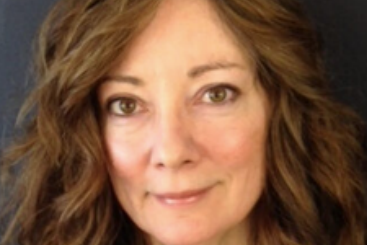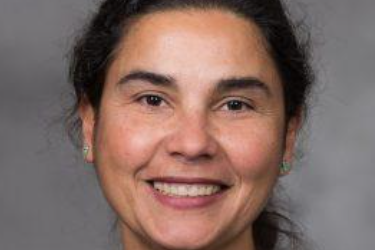African Studies Global Virtual Forum: Decoloniality and Southern Epistemologies—Adilbenia Freire Machado

Title- “African-Brazilian Philosophies: Ancestral Feminine Knowledges in the Weavings of Afro-Referenced and Counter-Colonial Thought ” Abstract This conversation aims, through African-Brazilian philosophies, to bring forward feminine perspectives grounded in philosophies of ancestrality and enchantment – denouncing the colonialities that permeate our daily lives while proclaiming counter-colonial perspectives. Afro-referenced thought carries within it afropindorâmicas and Afro-Indigenous
African Studies Global Virtual Forum: Decoloniality and Southern Epistemologies—Priya Parrotta

Title: “From Archives to Soundscapes: Integrating Historiography, Music and Environmental Consciousness in Courses on Tropical Islands Abstract” Historical understanding and artistic depth are two essential elements of decolonial pedagogy and environmental movement-building. Drawing upon original work as a historian, musician, and environmental activist, this talk explores the ways in which academic historiography and artistic practice
African Studies Global Virtual Forum: Decoloniality and Southern Epistemologies—Melinda Maxwell-Gibb
Melinda Maxwell-Gibb, Ph.D. “The Migration of Native Americans from the Southeastern United States into the Northern Caribbean” Bio: Melinda Maxwell-Gibb is an associate English professor and member of the Interdisciplinary Research Center for Gender Studies (CIIEG) and at the Interamerican University of Puerto Rico’s Metropolitan Campus. Having received her doctoral degree from the University of
African Studies Global Virtual Forum: Decoloniality and Southern Epistemologies—Ian Hancock
Title: “The Trans-Atlantic Shipment of Romanies to the Americas: Discursive Silencing, Erasure, and Inhospitableness” Abstract: This presentation highlights the crying need and the considerable value of crossing the borders that have been artificially erected between linguistics on the one hand, and history, demography, geography, sociology, ethnography, political science, economics, etc. on the other. Here this
African Studies Global Virtual Forum: Decoloniality and Southern Epistemologies—Benjamin P. Davis
Abstract: This talk will be about the influence of Edward Said and Jacques Derrida on Benjamin Davis’s new book Another Humanity: Decolonial Ethics from Du Bois to Arendt. The talk will also think with Zimitri Erasmus’s concept of “double politics.” Biography: Benjamin P. Davis is an assistant professor in Africana studies and Hispanic studies at
Center for Language Science Speaker Series: Anna Ivanova

What is the relationship between language and thought? This question has long intrigued researchers across scientific fields. In this talk, Anna Ivanova will propose a framework for clarifying the language-thought relationship. She will introduce a distinction between formal competence—knowledge of linguistic rules and patterns—and functional competence—understanding and using language in the world. This distinction is
Mindfulness Monday: Manifesting Your Summer with Chinese Takeout
Take a mindful pause before finals and join us for an evening of intention-setting and positive vibes. We’ll reflect on the semester, look ahead to summer goals, and enjoy some Chinese takeout while we manifest what’s next.
Spring into Action: Create a Final Exam Study Plan (Drop-In Hours)
Get ready for finals! Meet with a peer success coach to create a personalized study plan to finish the semester strong.
“Cultural Racism”

Please join us as we welcome Linda Alcoff to present her “Cultural Racism” paper. It will define what cultural racism is, and argue it is central to understanding racism today.
Keystone Poetry
University Libraries, Penn State Press, and the Department of English’s Creative Writing Program are sponsoring the launch of Keystone Poetry. Join us for readings from the new poetry anthology edited by Marjorie Maddox and Jerry Wemple. Featuring many graduates and current Penn Staters.
Center for Language Science Speaker Series

Pidgin and Creole languages typically emerge in multilingual settings and result from the multiple, complex social factors and linguistic processes that participate in language emergence, development and change. The original creolophones’ diverse linguistic backgrounds account for the unavoidable variability in the input to Pidgins and Creoles and make it necessary to consider variation as one
African Studies Global Virtual Forum: Decoloniality and Southern Epistemologies—Sibyl Diver
Sibyl Diver is an interdisciplinary environmental scientist, a lecturer in the Earth Systems Program, and co-director for the Environmental Justice Working Group at Stanford University. She does community-engaged research on Indigenous water governance in Pacific Northwest salmon watersheds. This includes research on co-management (or collaborative management) arrangements between Indigenous communities and state agencies, and decolonizing